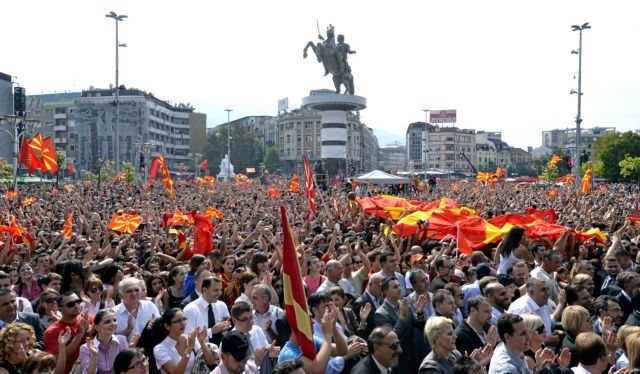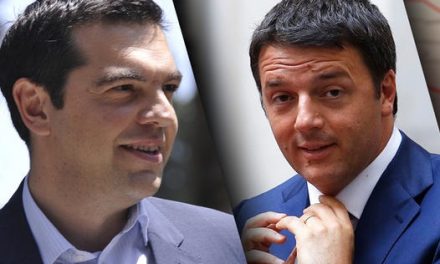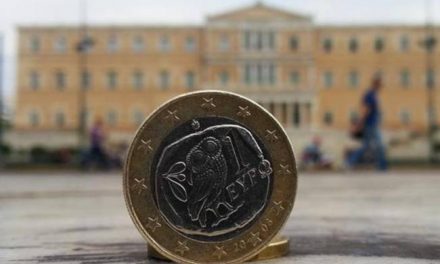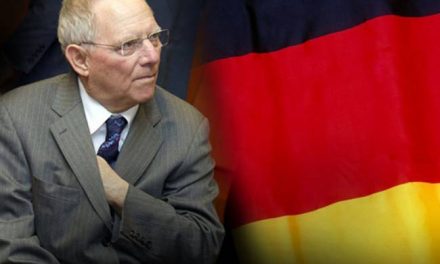Since the election of a reformist, social democratic government, Macedonians are seeing surprising shoots of hope in their country.
By DAVID STEFANOSKI, Open Democracy
It’s been 8 months since the government in the Republic of Macedonia changed. Before 31 May 2017, the conservative VMRO-DPMNE (a mouthful, I know) dictated political life in the country on all levels, starting from the official political institutions of the country all the way to political jargon in interpersonal communication between citizens.
However, after a period of protests by independent citizens and the opposition, joined by civil society organizations, as well as a number of deadly political mistakes on the part of the conservatives, the 11-year rule of Nikola Gruevski fell and the social democrats came to power.
Immediately after the change of government, things started changing. Democracy, in its rawest form and at a minimal level, has been restored to the Republic. Where before there was ruling with an iron fist, there is now decent governing. Of course, the new government is not perfect, but they have proven themselves worthy of being called “a better option”.
The old VMRO-DPMNE is not only no more, but almost all notable officials from their ruling period have either been removed from power, put into police custody or submitted resignations from all party functions. They have a new leader now, who seems far more suited to lead the opposition.
The only time we see the old VMRO-DPMNE team headed by Gruevski is in the courtroom, to the dismay of his followers and the sheer glee of everyone else. Ranging from election fraud to unlawful spending of public money and everything else in between, the ex-government officials are in for many visits to the courts.
While the special prosecutor keeps doing what they were supposed to do, the judiciary is still at a standstill. There has been no general re-election of the judges, nor have there been any judicial proceedings against judiciary officials. The only action taken by the new government was to shuffle around judges and prosecutors so that they wouldn’t stay in the same departments. In 2016, the Economist Intelligence Unit classified Macedonia as a “hybrid regime”, which was fair at the time, but is no longer since the country has moved on and replaced its dictatorial ex-government.
Meanwhile, the SDSM is trying as hard as possible to appear different from their predecessors. They elected a new public prosecutor, new presidents of the courts, and even formed a reformative body for the judiciary consisting of some of the most revered law experts in the country, two of which quit the body because of various reasons.
Not much else has been done in the judiciary, which gives the impression that nothing has been done at all, but that is not the case. The public impression is that the judiciary system is now halfway independent and halfway under the control of the government, But even those that see certain domination over the judiciary by SDSM aren’t protesting it, I believe due to their perception of the crimes of the previous government.
Concerning the executive branch, there have been notable improvements but notable faults as well, although the latter, as opposed to the self-serving VMRO government before them, is not intentional nor out of personal interest. Simply put, the new government is having trouble dealing with the relics of the past and the work ethic established at the lower levels, where personnel has not been replaced by new cadres.
There have been, of course, certain issues that have been publicly debated and even called out to be “stealing” such as the new VAT reform or the foreign policy of the country, but for once we are debating the issues instead of the people presenting the issues.
The government is seeking responsibility with cadres like the director of the agency for promotion and support of tourism and the director of the Macedonian people’s theatre Donev and Spasov, one of whom was removed from his position for irresponsible spending of public money and the latter for injuring pedestrians while drunk driving. This type of move was inconceivable in the previous government, where ex-minister of labor and social policy Dime Spasov was chased by the police after causing two car accidents and was still defended by the people in power in 2016.
There seems to be a more direct engagement of the executive branch in problem solving, but problems such as the construction of the several mines in the southeastern region of the country still remain, with government hesitation as the main problem for their halting and removal. Another very popular measure by the new government has been the partial amnesty for prisoners that have committed certain crimes, although not those for the more serious crimes.
The legislative branch is experiencing some of the similar problems like before as well. Laws are still passed en-masse, covertly and without public debate. The largest opposition party, VMRO-DPMNE has multiple MPs in police custody and is boycotting parliament, with the only exception to their boycott being the 35000 amendments they proposed to the “Bilingualism bill” in order to block it.
Laws are still used as political tools, just like before, but this time they are laws such as the “Bilingualism bill” which would make Albanian the second state language.This way, the government coalition consisting of SDSM, DUI and AA (the latter of which are ethnic Albanian parties) would continue to exist and there would be no need for elections.
Personally, I don’t mind the national bilingualism, as long as two conditions are met – first, that nobody is forced to do anything against their will and national identity (no penalization for not knowing a certain language or refusing to identify with it) and second, that the other smaller ethnicities in the country are represented as well (Roma, Turks, Serbs, Aromanians, Bulgarians etc) and are able to use their languages to communicate with official institutions. If we are to make a progressive nation, we cannot limit ourselves to the hatred of the past or its causes – we have to look forwards towards a future consisting of peace, equity and success on a state level.
When it comes to foreign policy, the country has experienced and is still going through an explosion of successes. Macedonia has signed a friendship treaty with neighboring Bulgaria, something that had been on hold for a decade, and it has also restarted and revitalized the name negotiations.
Prime Minister Zaev has consolidated his party along with his government, the opposition and the office of the president in a recent coordination meeting with all of them, and even the leader of the conservative VMRO-DPMNE, Hristijan Mickovski has given his support to the process of solving the name issue and entering NATO, per the statement of General Secretary Stoltenberg. While polls have shown in the past that the Albanian population wants the name changed and membership in NATO at all costs, I believe there is also a growth in those of other ethnicities, including the Macedonian one, that think the name should be changed to something mutually acceptable in order to integrate the country in the European and North Atlantic institutions.
I believe the name issue will be solved with a referendum that will have a two-part question, like the independence referendum in 1991, with one part being the acceptance of the new name, conditioned by the second part, which is entering the North Atlantic alliance. So far, Prime Minister Zaev has promised a change of the name of the national highway and main airport, both named “Alexander the Great”, with the highway’s name being changed to “Friendship”, to improve relations with neighboring Greece.
In return, Greek Prime Minister Alexis Tsipras has promised to remove their blockade on the EU stabilization and association which was blocked in 2009, as well as opening up a new border crossing in the Prespa Lakes region and positing future membership of Macedonia in the Adriatic and Ionian Initiative.
All in all, the country has experienced an improvement in all possible aspects but it is still plagued by many problems from the previous regime and some problems created now, such as the differentiation between political cases and criminal cases from the previous government and their police actions. In regards to labor rights, there have been no significant changes. In regards to the economy, there has been a small improvement, but nobody has deemed it sufficient.
There is no oppression like there once was, no dictatorship like there once was and no forced rule like there once was, and yet, the government raised the price on diesel fuel, which has widely been regarded as a bad move. The new officials communicate with the public and the media openly, instead of running from journalistic questions, and yet the new government sector for public communication has been deemed a “Ministry of Information”.
If things continue like this, the Republic of Whatever-Its-New-Name-May-Be may find itself in NATO before the second half of 2018 and starting negotiations with the EU in the near future as well. The youth of the nation will support these changes, and so will the majority of the population, except for every single opposition party, including both radical right wingers, pro-Russian parties and left-wing parties alike.
The new government seems to be doing better and of course, making their own mistakes, but so far they haven’t run from them, owning up to their errors instead. But as opposed to their predecessors, this government is not trying to control every little bit of the system and the general public can feel it.
In the wake of 2018 the major question that everyone poses is “How soon can we be certain that this country will be a country once again, instead of an enclave of lawlessness?” The answer might be – it already is, but we’re too used to the old system to notice it.



















